The ACL, or Anterior Cruciate Ligament, is one of the four major ligaments in your knee that helps stabilize it. It connects the femur to the tibia and is important for knee stability, particularly in sports like soccer, football, basketball, and tennis. An ACL injury occurs when this ligament is stretched too far or torn, and is common in athletes, weekend warriors, or anyone who enjoys physical activity. Read on to learn more about ACL injuries, including the types of tears, causes, symptoms, and treatments.
What causes an ACL injury?

ACL injuries frequently occur when you plant or change direction while playing sports or engaging in physical activity. Here are some of the most common causes of ACL injuries:
- Stopping or starting suddenly
- Changing directions
- Jumping and landing incorrectly
- Direct contact with another person or object, though most ACL injuries (70%) are non-contact.
What are the symptoms of an ACL tear?
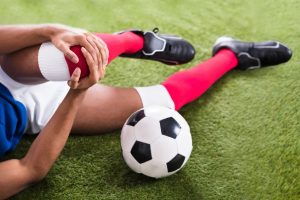
An ACL tear can cause a range of symptoms, often presenting immediately after the injury occurs. Recognizing these signs is important, as prompt medical attention and appropriate treatment are crucial. Watch out for these common ACL tear symptoms:
- A popping sound at the time of injury
- Immediate swelling and pain in the knee
- Difficulty bearing weight on the injured knee
- A feeling of stiffness and/or instability in the knee
Diagnosing an ACL Tear
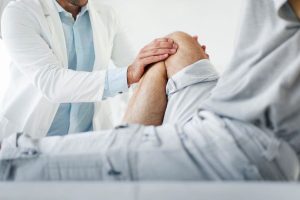
Diagnosing an ACL tear involves assessing a patient’s history, a physical exam, knee X-rays, and usually an MRI. During your first visit at Advanced Ortho & Spine, we will assess your knee stability, strength, range of motion, tenderness, and swelling. We will also take an initial set of X-rays. All of this information will help us determine the type and severity of your ACL injury.
What are the types of ACL injuries and how are they treated?

ACL injuries are typically classified into three grades based on the severity of the tear. Treatment normally depends on the grade of the injury.
- Grade 1 (ligament is stretched but remains intact): Grade 1 ACL injuries are often treated with conservative measures like rest, ice, compression, and elevation (RICE), along with physical therapy.
- Grade 2 (ligament is partially torn): Treatment often involves a combination of conservative measures like rest, ice, compression, and elevation (RICE), along with physical therapy and bracing, with surgery considered in some less common cases.
- Grade 3 (ligament is completely torn): Treatment typically requires surgical reconstruction to repair the ligament. The goal of surgery is to stabilize your knee and return you to the activities you enjoy most.
ACL Injury Prevention

Preventing ACL injuries requires a combination of proper training techniques, muscle strengthening, and injury awareness. Warming up before physical activity is crucial to prepare your muscles and joints for exercise. Incorporating stretching and strengthening exercises, particularly for the quadriceps, hamstrings, and core muscles, can significantly reduce your risk of injury. Additionally, formal training programs exist that can teach proper landing techniques, and how to avoid sudden changes in direction that can help protect your knees.
When should I seek medical attention?

If you experience a sudden, sharp pain in your knee, particularly after a twisting or pivoting motion, it’s crucial to seek medical attention promptly. Even if the pain subsides, it’s essential to have your knee evaluated by a healthcare professional. Early diagnosis and treatment can significantly impact your recovery and long-term knee health. Don’t delay; schedule an appointment with a qualified orthopedic specialist at Advanced Ortho & Spine (AOS) to receive expert care and guidance. Dr. Christopher Cook and Dr. Daniel Hagaman are experienced orthopedic surgeons and sports medicine specialists at AOS with expertise in treating ACL injuries.
To learn more and schedule an appointment, call us at 615.885.0200 or contact us online.
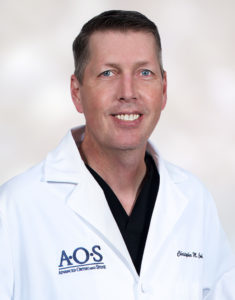 Dr. Christopher Cook is a Board-Certified Orthopaedic Surgeon and Sports Medicine & Joint Replacement Specialist at Advanced Ortho and Spine. He provides a full spectrum of Joint Replacement, Sports Medicine, and Shoulder & Upper Extremity services. Contact us today for more information or to request an appointment. Contact us today for more information or to request an appointment.
Dr. Christopher Cook is a Board-Certified Orthopaedic Surgeon and Sports Medicine & Joint Replacement Specialist at Advanced Ortho and Spine. He provides a full spectrum of Joint Replacement, Sports Medicine, and Shoulder & Upper Extremity services. Contact us today for more information or to request an appointment. Contact us today for more information or to request an appointment.
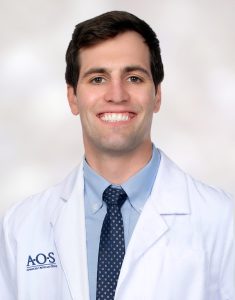 Dr. Daniel Hagaman is a Fellowship-Trained Orthopaedic Surgeon & Sports Medicine Specialist at Advanced Ortho and Spine. He specializes in a range of orthopaedic conditions and treatments including Knee Arthroscopy, Knee Ligament & Cartilage Repair, Shoulder Arthroscopy, Hip Arthroscopy, Orthobiologistics, and more. Contact us today for more information and to request an appointment.
Dr. Daniel Hagaman is a Fellowship-Trained Orthopaedic Surgeon & Sports Medicine Specialist at Advanced Ortho and Spine. He specializes in a range of orthopaedic conditions and treatments including Knee Arthroscopy, Knee Ligament & Cartilage Repair, Shoulder Arthroscopy, Hip Arthroscopy, Orthobiologistics, and more. Contact us today for more information and to request an appointment.
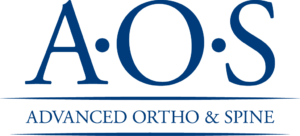
With two locations near Nashville in Mt. Juliet and Hermitage, Advanced Ortho and Spine provides patients with high-quality, personalized care while advancing orthopaedic excellence. Contact us today to learn more or to schedule your appointment.
Disclaimer: This blog provides general information and discussions about health and related subjects. The information and other content provided in this blog, or in any linked materials, are not intended and should not be construed as medical advice, nor is the information a substitute for professional medical expertise or treatment.If you or any other person has a medical concern, you should consult with your healthcare provider or seek other professional medical treatment. Never disregard professional medical advice or delay in seeking it because of something read on this blog or in any linked materials. If you think you may have a medical emergency, call your doctor or emergency services immediately.
The opinions and views expressed on this blog and website have no relation to those of any academic, hospital, health practice, or other institution.

